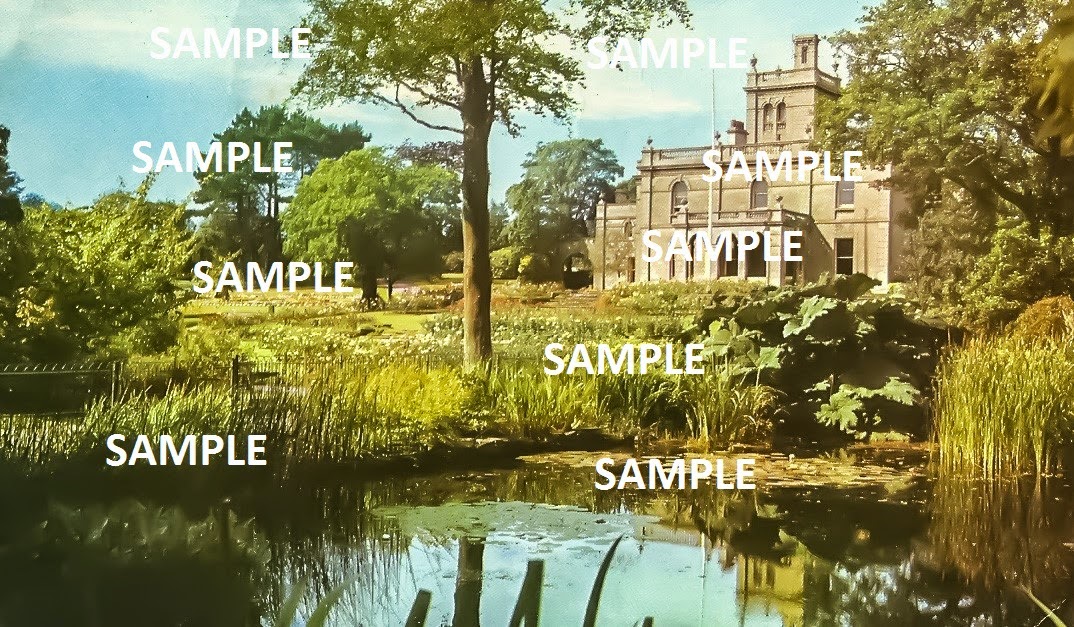Images of Old Llanelli & District
The postcard views, photographs and memorabilia contained
in this book are mostly from my own
private collection, a collection which had been gathered over a period of some
forty years. Some of the views published were taken by myself during my
schooldays, living in the village of Pwll, near Llanelli. Many of the
photographs were taken at Duport Steelworks, Llanelli, formerly known as
Llanelly Steel (1907) Ltd, where I worked as a foreman fitter, responsible for
the maintenance and repair of all locomotives and internal transport. My
fascination with transport is also reflected in this publication, with many
historical transport views included.
It must be pointed out that prior to 1965, Llanelli was
spelt ‘Llanelly’ and this spelling is used where appropriate.
For the reader not familiar with the district, and for
completeness, I have produced a map of the area on page 5.
This publication also contains numerous photographs which
have never been published before, giving a magnificent view of the town’s historical
and industrial past.
Some of these views bring back pleasant memories to me,
and I sincerely hope that this publication will give you the reader as much
pleasure reading it as I’ve had in compiling it.
THIS PUBLICATION IS NOW BACK IN STOCK - by public demand
Format:
29.5cm x 21.0cm
29.5cm x 21.0cm
Paperback
130 pages
130 pages
Publisher/Distributor: Vernon Morgan, Llanelli +44(0)7751 260069
SAMPLE
This view of lower Stepney
Street, Llanelli dates from the late 1920’s and features the York Hotel on the
left, and a very unusual public telephone box on the traffic island in front of
the South Wales Transport 1926 AEC bus. Beestons Bakery shop is forming part of
the group of shops beneath Lucania Billiard Hall; with the Llanelly Cinema next
door (nowadays a Weatherspoon’s bar), and the YMCA building. The Llanelly
Electric Supply Company (LLAN-E-S-CO) tram No 7 is captured here heading for
the railway station terminus, with a large motor car (BX 5263) of unknown 1925
manufacture, parked outside Beestons Bakery. Note the ‘vintage’ pram in the
centre foreground, crossing a very quiet Stepney Street.
The focal point of this view is the splendid
architecture of the building to the right of the picture. Built for the South
Wales Union Bank in 1892, its façade was a fine example of Victorian design,
and remains there today (2014), virtually unchanged and owned by the Halifax
Building Society. This area of Llanelli was known as Presbyterian Square, a
name derived from the church located at this junction. The hairdresser ‘Our
Boys’ was a feature in this building for almost a century. The roadway off to
the right is Cowell Street, and the road ahead is the much photographed Stepney
Street in 1911, now pedestrianized. This postcard view was published by J.
Marker, Tobacconist, 7A Stepney Street & 94 Station Road, Llanelly.
The Thomas Arms Hotel
and Thomas Street, Llanelli hasn’t changed very much in the last century. This
is a view of Thomas Street in 1911, when the annual horse fair was being held
there. Note the absence of motor traffic – a rather different scene to that of
today.
The bailey bridge, constructed by Sir John Jackson Ltd, is seen here in 1964, with a
Llansaint bound Eynon’s bus crossing the steel structure. The decking of the
bridge had a timber surface which was quite slippery when wet. Eynon’s were very
fond of these Ex. London buses, acquiring no less than 14 between 1958 and
1970.
There were an estimated 1,600 tons of empty bombs and
shells visible in this picture, taken on the steelworks ‘tip’ in 1958. The
square building, in the centre of this view, was the Sheet-works weighbridge
and office. The small white building (centre background) was the ESSO petrol
filling station on Sandy Road, occupied by J. E. De-Schoolmeester, and on the
right hand side of this view is Denham Garage, then owned by John Evans &
Son (Llanelly) Ltd. (A photograph of this garage appears on page 76 of the book.)
The ‘Burrows, Burry Port’ circa 1890, with the
Copperworks in the background. This area of Burry Port later became the site of
Carmarthen Bay Power Station which was demolished in 1991-2.
The sky-line of south Llanelli has certainly changed
since this photograph was taken in the late 1940s. The view was taken from The
Graig in Pwll, with Stepney Road in the foreground, before the boys Grammar
School was built (now Coleg Sir Gar, Graig Campus). All the works visible in
the background have since disappeared, the area now forming part of Llanelli’s
Festival fields and Millennium Coastal Path. The works visible in this view are:
Llanelly Sheetworks; Llanelly Steelworks; Llanelly Foundry & Engineering
Co; Old Castle Tinplate works; Pemberton Tinplate works; Copperworks; Glanmor
Foundry; Llanelly Power-station; South Wales Steelworks (Morewoods); Batchelor
Robinson metals; Burry Works; Morfa Tinplate works, and Machynys Foundry.
A view of Station Road, Burry Port, taken in 1913.
The
single story building on the extreme right is the only building that has
disappeared.
The Mansion House at
Park Howard, Llanelli, was built from Bath stone in 1882-6. This 18th
century ‘Italianate’ architecture country house was originally named Bryncaerau
Castle, and stood in its own 24 acres of land. Bryncaerau was the home of Sir
Stafford and Lady Howard–Stepney. Sir Stafford had married Miss Stepney,
daughter of the famous Stepney family in September 1911. However, after the
death of Lady Howard-Stepney, Llanelli Borough Council acquired the whole
estate, converting the Mansion House into a Museum and the 24 acres into a
civic park.
To read more, please purchase my book...










No comments:
Post a Comment